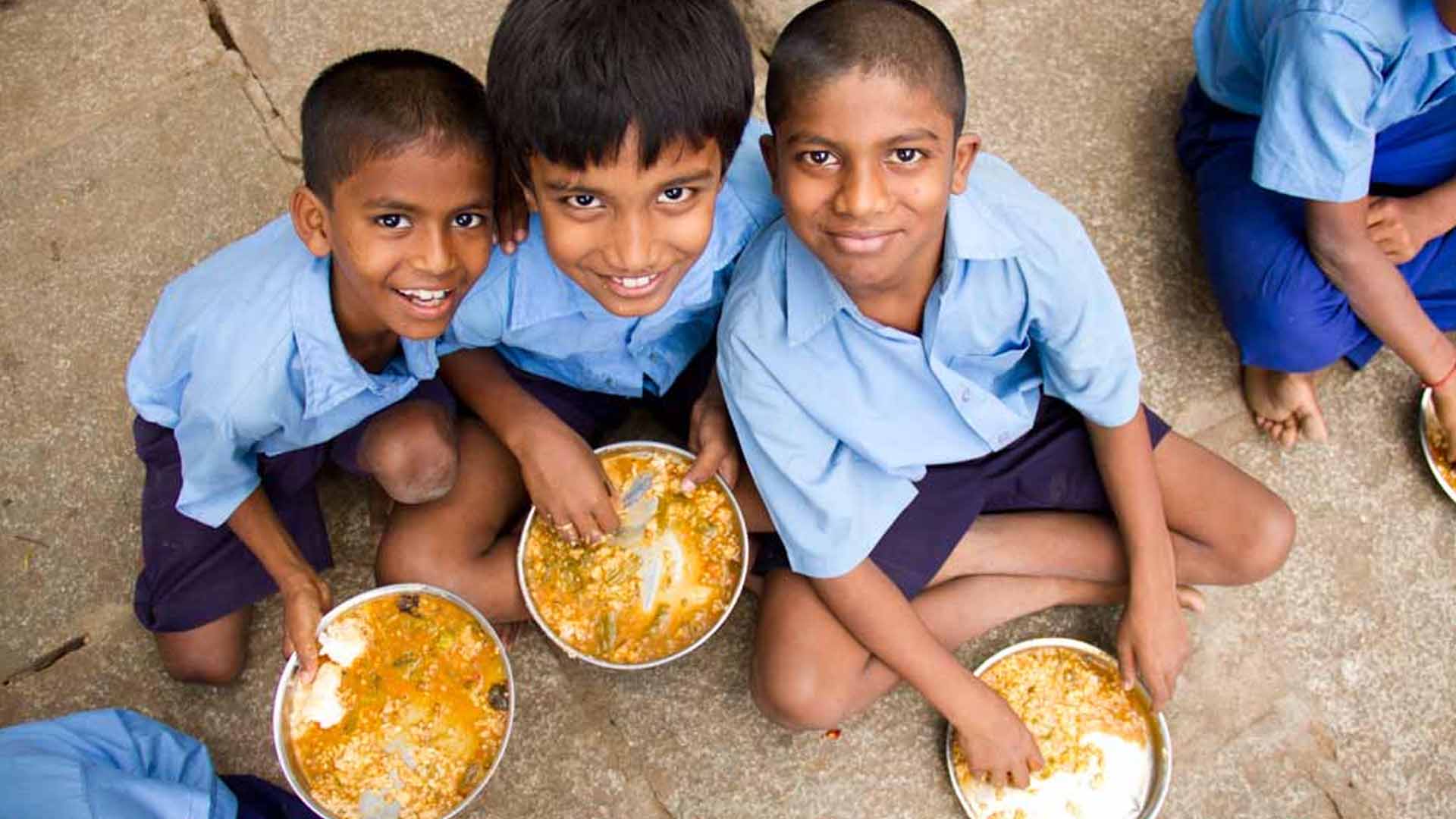The United Nations World Food Programme (WFP) and the Akshaya Patra Foundation (TAPF) will work together to enhance school meals programmes in India with an aim of sharing the experience beyond the country.
Bishow Parajuli, Representative and Country Director for WFP in India, and Chanchalapthi Dasa, Vice-Chairman, Akshaya Patra Foundation, signed the agreement on January 5. Under the partnership, WFP and TAPF will aim to enhance food safety and hygiene projects, capacity building of cooks-cum-helpers and nutritional quality of school meals. The two organisations will share knowledge by organising workshops and policy and strategy dialogues with the government to improve the quality of the school meals programme. The partners will form a steering committee comprising representatives from both organisations. The representatives will meet quarterly to plan, discuss and review various aspects of the collaboration. Both organisations will bring in financial resources as required to support the implementation of the activities.
Mid-day Meals Scheme, also known as Prime Minister Poshan, is one of the three main food-based safety nets in India, reaching close to 100 million school-aged children with hot-cooked meals. It plays a significant role in retention of children in school while providing nutritional security.
“The partnership is a strategic force multiplier bringing deep work and experience together. India was strategically important for School Meals Coalition that was launched in 2020 with WFP as a coordinating body, as it implemented the largest school feeding programme in the world,” said Bishow Parajuli.
Chanchalapthi Dasa, Vice Chairman, TAPF, said, “With this partnership, the foundation intends to complement WFP’s global network of running large-scale feeding programmes across the world.”
Earlier, NITI Aayog entered into an agreement with the WFP to address issues related to the inclusion of millets in India’s free food distribution programme to create a more diverse food basket with a focus on coarse grains and millets. The plan was to collaborate in four phases, beginning with the creation of a best practice compendium on millet mainstreaming and a scale-up strategy in the first phase. In the second phase, the partners will support millet mainstreaming scale-up through knowledge sharing and intensive engagement with select Indian states. In the third phase, the organisations will leverage India’s expertise to support developing countries for millet mainstreaming and work on building capacities for climate-resilient and adaptive livelihood practices.
In accordance with a United Nations General Assembly resolution, the government of India designated 2018 as the International Year of Millets to encourage and promote millet production in India, and 2023 as the International Year of Millets.


























